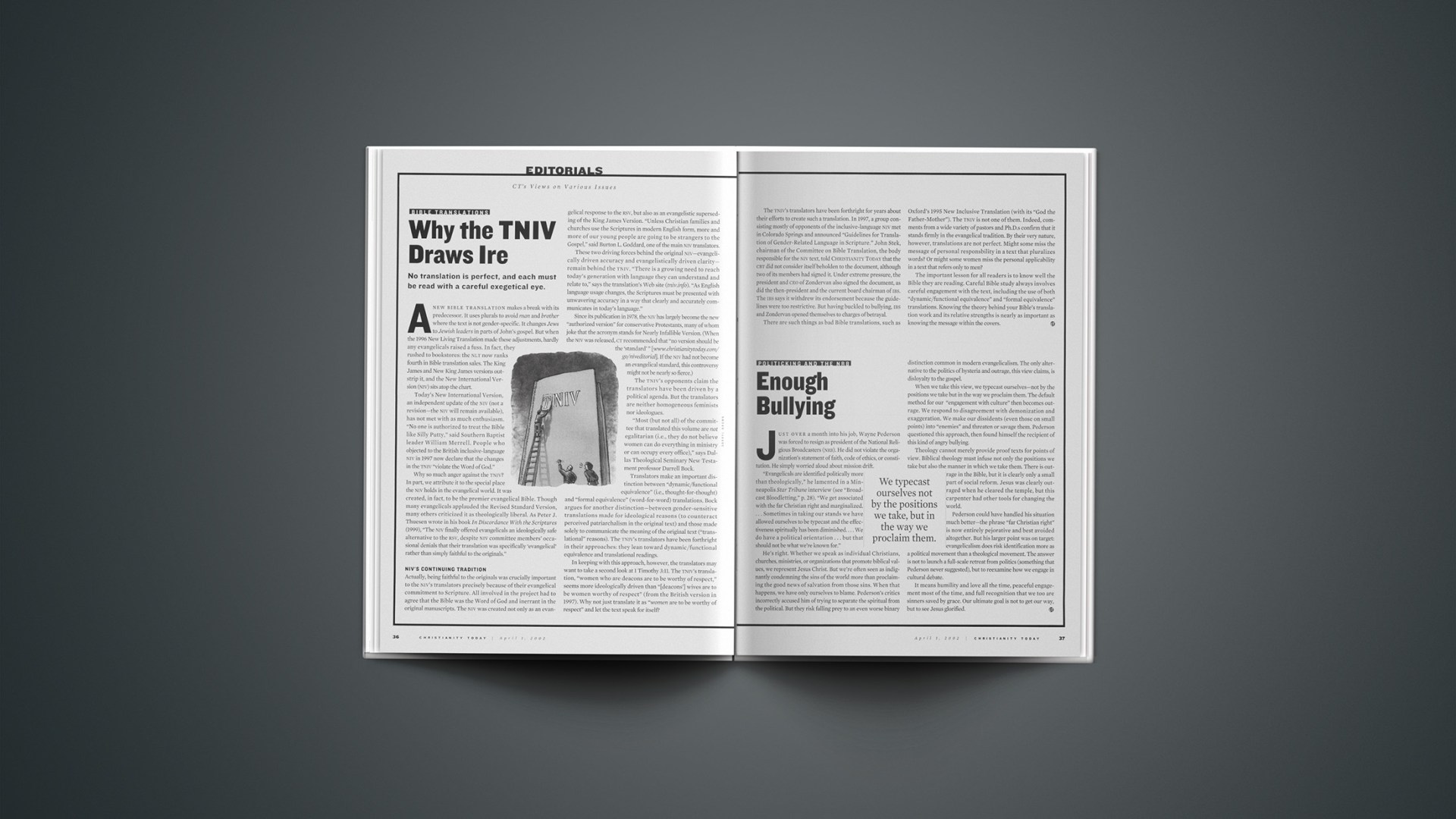Just over a month into his job, Wayne Pederson was forced to resign as president of the National Religious Broadcasters (NRB). He did not violate the organization’s statement of faith, code of ethics, or constitution. He simply worried aloud about mission drift.
“Evangelicals are identified politically more than theologically,” he lamented in a Minneapolis Star Tribune interview. “We get associated with the far Christian right and marginalized . …Sometimes in taking our stands we have allowed ourselves to be typecast and the effectiveness spiritually has been diminished . …We do have a political orientation … but that should not be what we’re known for.”
He’s right. Whether we speak as individual Christians, churches, ministries, or organizations that promote biblical values, we represent Jesus Christ. But we’re often seen as indignantly condemning the sins of the world more than proclaiming the good news of salvation from those sins. When that happens, we have only ourselves to blame. Pederson’s critics incorrectly accused him of trying to separate the spiritual from the political. But they risk falling prey to an even worse binary distinction common in modern evangelicalism. The only alternative to the politics of hysteria and outrage, this view claims, is disloyalty to the gospel.
When we take this view, we typecast ourselves—not by the positions we take but in the way we proclaim them. The default method for our “engagement with culture” then becomes outrage. We respond to disagreement with demonization and exaggeration. We make our dissidents (even those on small points) into “enemies” and threaten or savage them. Pederson questioned this approach, then found himself the recipient of this kind of angry bullying.
Theology cannot merely provide proof texts for points of view. Biblical theology must infuse not only the positions we take but also the manner in which we take them. There is outrage in the Bible, but it is clearly only a small part of social reform. Jesus was clearly outraged when he cleared the temple, but this carpenter had other tools for changing the world.
Pederson could have handled his situation much better—the phrase “far Christian right” is now entirely pejorative and best avoided altogether. But his larger point was on target: evangelicalism does risk identification more as a political movement than a theological movement. The answer is not to launch a full-scale retreat from politics (something that Pederson never suggested), but to reexamine how we engage in cultural debate.
It means humility and love all the time, peaceful engagement most of the time, and full recognition that we too are sinners saved by grace. Our ultimate goal is not to get our way, but to see Jesus glorified.
Copyright © 2002 Christianity Today. Click for reprint information.
Related Elsewhere
Related Christianity Today coverage includes:
Broadcast BloodlettingFlap over political identity forces NRB president to resign. (March 13, 2002)
Broadcasters Aim to Cool NRB ControversyDobson, Neff make gestures to mend wounds. (March 8, 2002)
Christian History Corner: Don’t Touch That DialCould a bitter debate among religious broadcasters really cause a “full-scale split in evangelicalism”? (March 8, 2002)
Weblog: Battle for NRB Heats Up as Dobson, Moody Square OffRobert Neff calls Focus on the Family head’s actions “ungodly,” Dobson says he’s victim of “smear campaign.” (March 5, 2002)
New NRB President ResignsChristian broadcasters divided over politics-religion controversy. (Feb. 18, 2002)
Politics May Splinter NRBChristian broadcasters may sack incoming president or bolt the organization. (Feb. 15, 2002)
Weblog: Saying Christian Radio is Too Political May Get Head of Religious Broadcasters FiredThe battle for Christian radio. (Feb. 22, 2002)
Daring to Discipline AmericaJames Dobson’s influence, already huge, is growing. Can he keep his focus? (March 1, 1999)
Other news coverage includes:
Silence isn’t golden — World (March 9, 2002)
Dobson fires back in NRB fracas — World Net Daily (March 9, 2002)
The NRB controversy began following Pederson’s comments in a January 5 article in the Minneapolis Star-Tribune.










